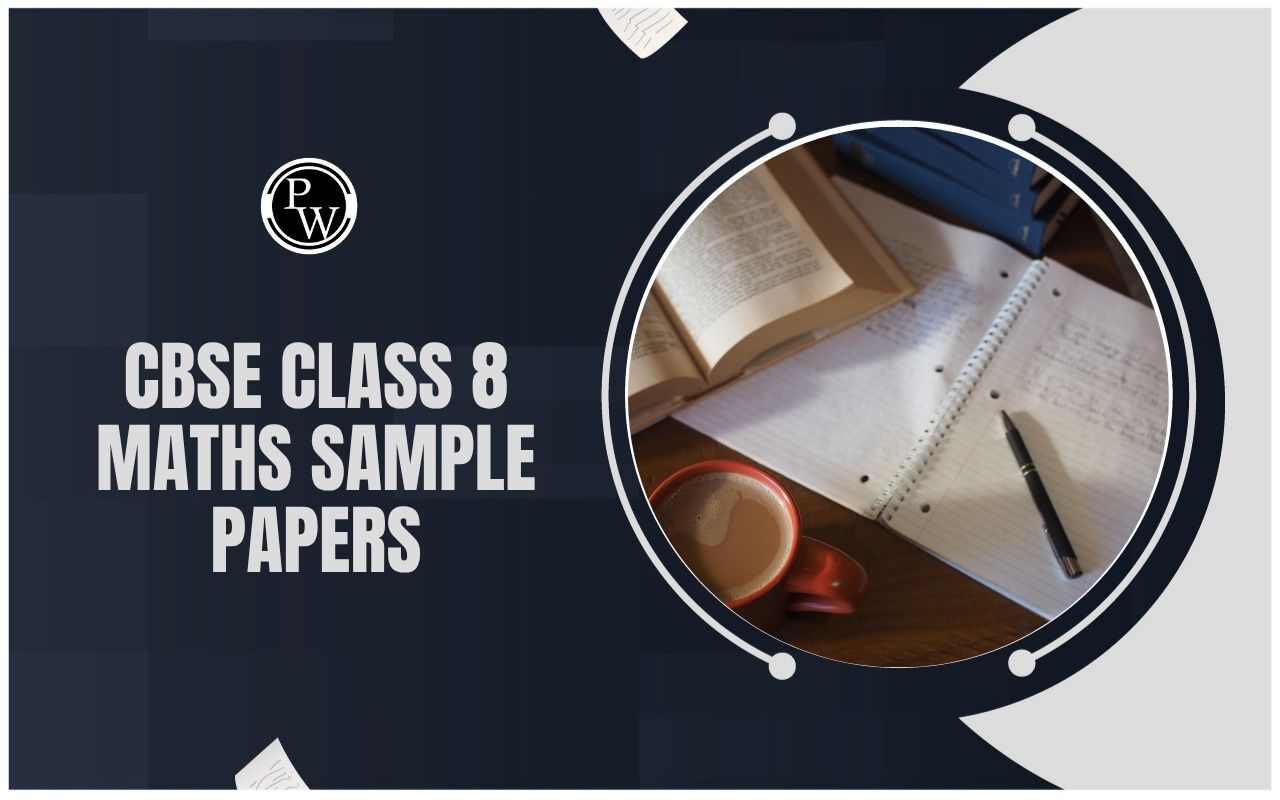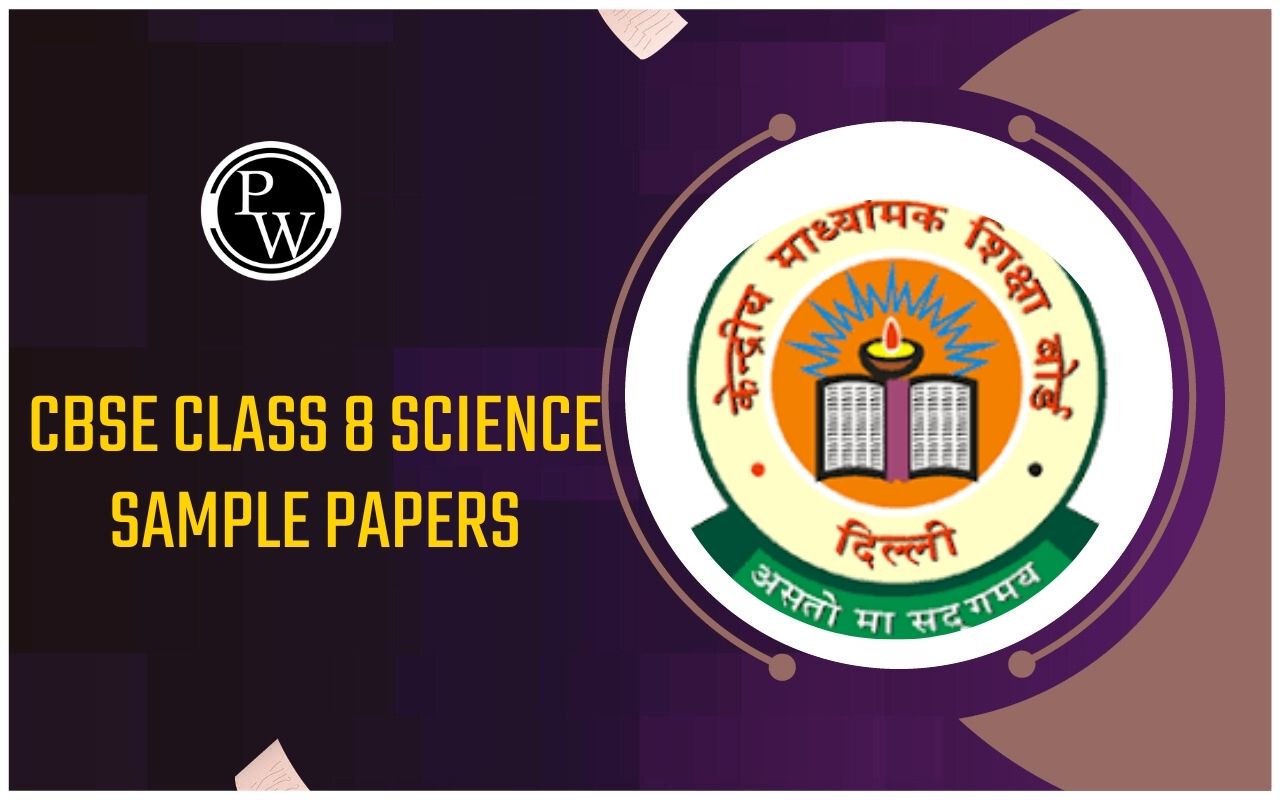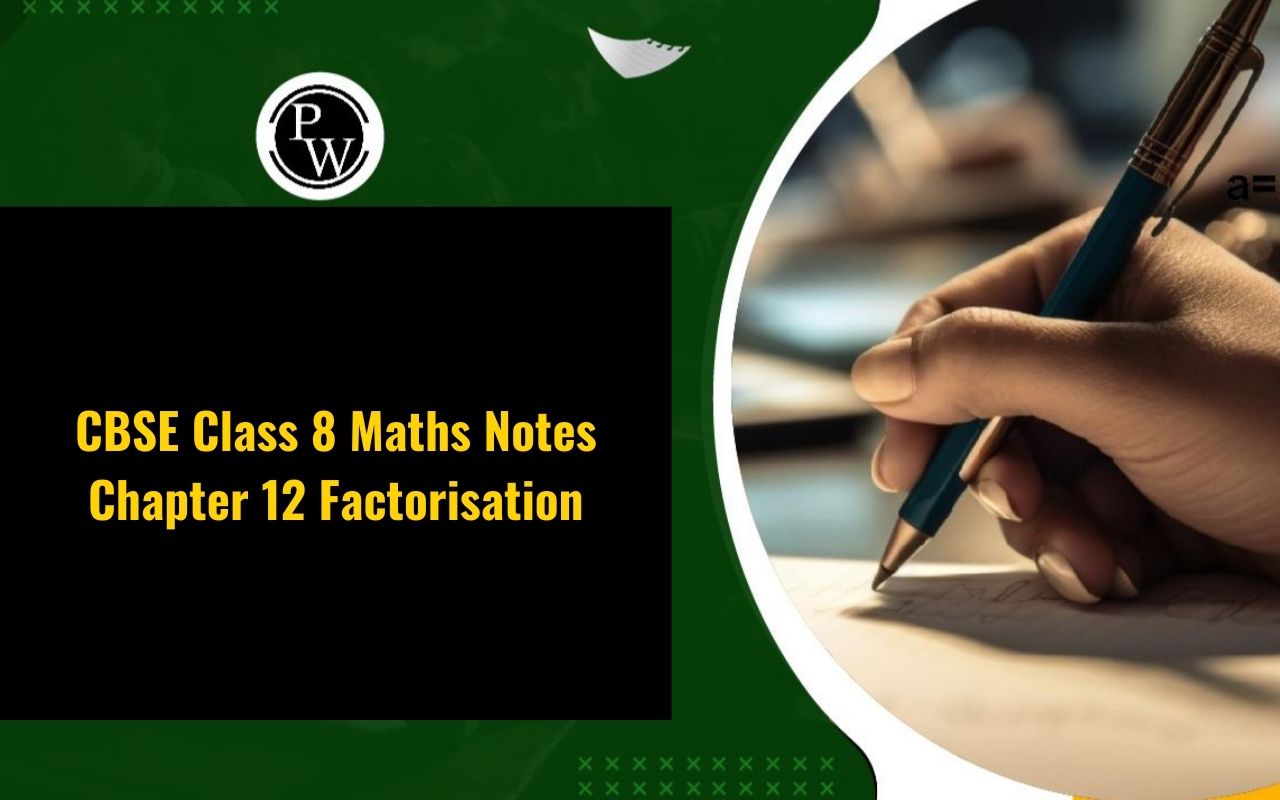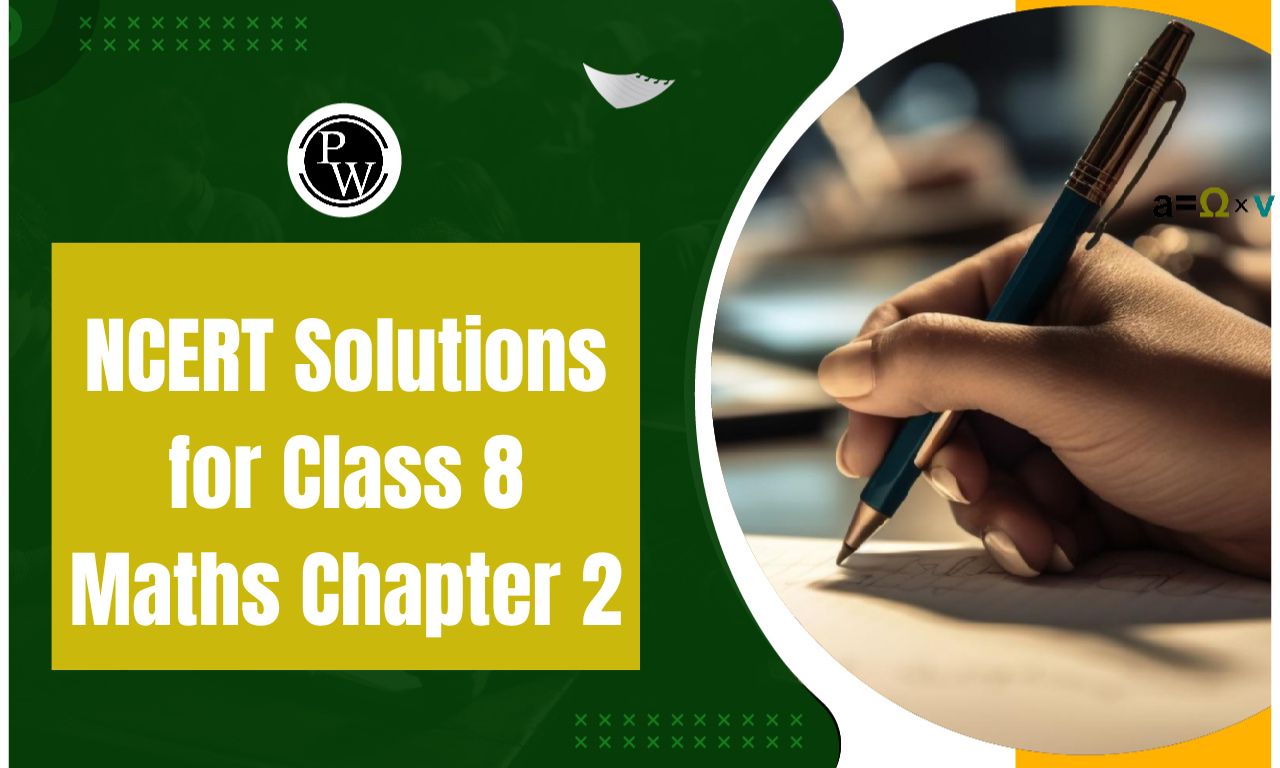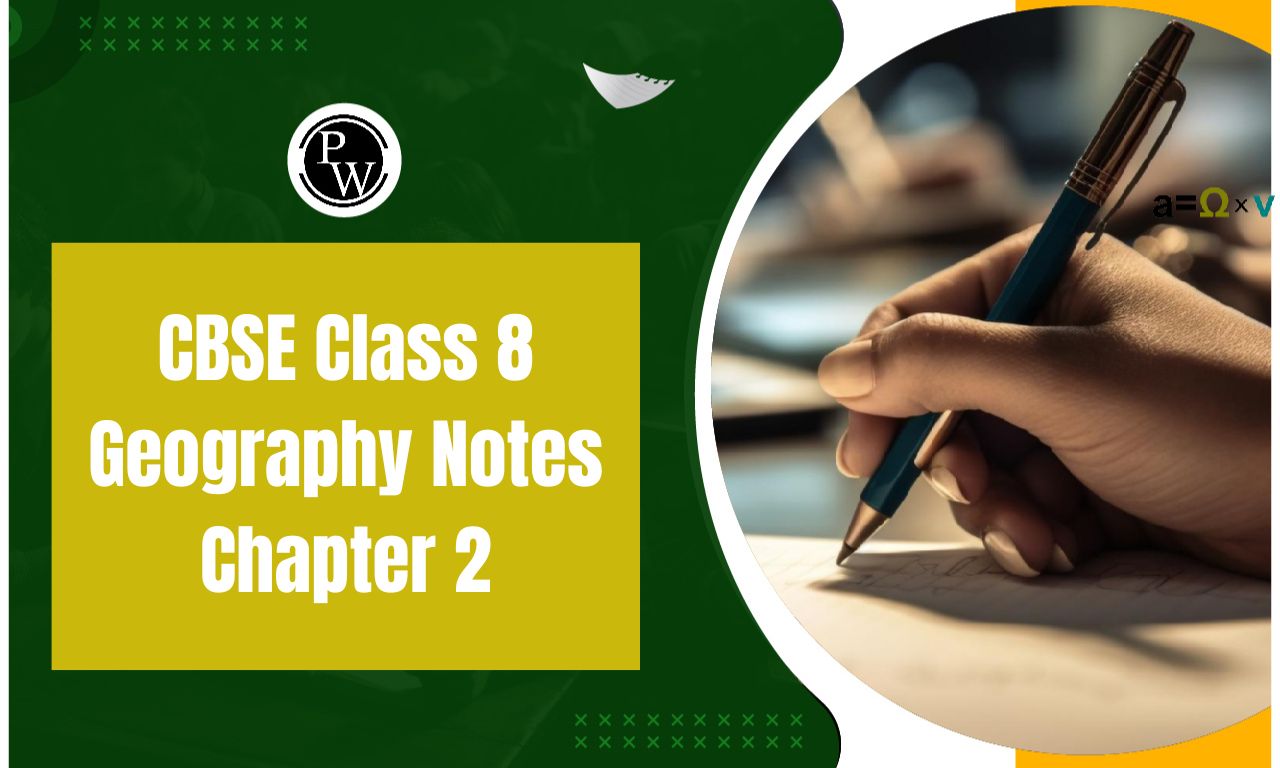
RS Aggarwal Solutions for Class 8 Maths Chapter 5 Exercise 5.2: The Physics Wallah academic team has produced a comprehensive answer for Chapter 5: Playing with Numbers in the RS Aggarwal class 8 textbook. One must have a firm understanding of Chapter 5 Playing with Numbers before proceeding with the solution of exercise 5B.
To that end, study chapter 5 Playing with Numbers theory, and attempt to solve all of the numerical problems in exercise-5B. For class 8 maths students, the NCERT textbook is a highly recommended resource for solving numerical problems and referencing NCERT solutions.RS Aggarwal Solutions for Class 8 Maths Chapter 5 Exercise 5.2 Playing with Numbers Overview
RS Aggarwal Solutions for Class 8 Maths Chapter 5 Exercise 5.2, titled "Playing with Numbers," explores fascinating concepts related to numbers and their properties. This exercise focuses on understanding the divisibility rules for various numbers, including 2, 3, 4, 5, 6, 8, 9, 10, and 11. Students learn how to quickly determine whether a number is divisible by another without performing full division, which enhances their problem-solving skills and mathematical intuition. The RS Aggarwal Solutions for Class 8 Maths Chapter 5 Exercise 5.2 provides a range of problems that challenge students to apply these divisibility rules in different contexts. For example, students may be asked to identify whether a given number is divisible by a specific divisor or to find missing digits in a number to make it divisible by another number. The problems are designed to encourage logical thinking and pattern recognition, essential skills in mathematics.RS Aggarwal Solutions for Class 8 Maths Chapter 5 Exercise 5.2 PDF
Below we have provided RS Aggarwal Solutions for Class 8 Maths Chapter 5 Exercise 5.2 in detail. This chapter will help you to clear all your doubts regarding the chapter. Students are advised to prepare from these RS Aggarwal Solutions for Class 8 Maths Chapter 5 Exercise 5.2 before the examinations to perform better.RS Aggarwal Solutions for Class 8 Maths Chapter 5 Exercise 5.2 PDF
RS Aggarwal Solutions for Class 8 Maths Chapter 5 Exercise 5.2 (Ex 5B)
Below we have provided RS Aggarwal Solutions for Class 8 Maths Chapter 5 Exercise 5.2 Playing with Numbers-Question (1) Test the divisibility of each of the following numbers by 2.
Rule: A given number is divisible by 2 only when its unit digit is 0, 2, 4, 6 or 8. (i) 94 = Divisible (ii) 570 = Divisible (iii) 285 = Not Divisible (iv) 2398 = Divisible (v) 79532 = Divisible (vi) 13576 = Divisible (vii) 46821= Not Divisible (viii) 84663 = Not Divisible (ix) 66669 = Not DivisibleQuestion (2) Test the divisibility of each of the following numbers by 5:
Rule: A given number is divisible by 5 only when its unit digit is 0 or 5. (i) 95 = Divisible by 5. (ii) 470 = Divisible by 5. (iii) 1056 = Not divisible by 5. (iv) 2735 = Divisible by 5. (v) 55053 = Not divisible by 5. (vi) 35790 = Divisible by 5. (vii) 98765 = Divisible by 5. (viii) 42658 = Not divisible by 5. (ix) 77990 = Divisible by 5.Question (3) Test the divisibility of each of the following numbers by 10:
Rule: A given number is divisible by 10 only when its units digit 10. (i) 205 = Not divisible by 10. (ii) 90 = Divisible by 10. (iii) 1174 = Not divisible by 10. (iv) 57930 = Divisible by 10. (v) 60005 = Not divisible by 10.Question (4) Test the divisibility of each of the following numbers by 3:
Rule: A given number is divisible by 3 only when the sum of its digits is divisible by 3. (i) 83 = (8 + 3) = 11 is not divisible by 3. (ii) 378 = (3 + 7 + 8) = 18 is divisible by 3. (iii) 474 = (4 + 7 + 40) = 15 is divisible by 3. (iv) 1693 = (1 + 6 + 9 + 3) = 19 is not divisible by 3. (v) 20345 = (2 + 0 + 3 + 4 + 5) = 14 is not divisible by 3. (vi) 67035 = (6 + 7 + 0 + 3 + 5) = 21 is divisible by 3. (vii) 591282 = (5 + 9 + 1 + 2 + 8 + 2) = 27 is divisible by 3. (viii) 903164 = (9 + 0 + 3 + 1 + 6 + 4) = 23 is not divisible by 3. (ix) 100002 = (1 + 0 + 0 + 0 + 0 + 2) = 3 is divisible by 3.Question (5) Test the divisibility of each of the following numbers by 9:
Rule: A given number is divisible by 9 only when the sum of its digit divisible by 9. (i) 327 = (3 + 2 + 7) = 12 is not divisible by 9. (ii) 7524 = (7 + 5 + 2 + 4) = 18 is divisible by 9. (iii) 32022 = (3 + 2 + 0 + 2 + 2) = 9 is divisible by 9. (iv) 64302 = (6 + 4 + 3 + 0 + 2) = 15 is not divisible by 9. (v) 89361 = (8 + 9 + 3 + 6 + 1) = 27 is divisible by 9. (vi) 14799 = (1 + 4 + 7 + 9 + 9) = 30 is not divisible by 9. (vii) 66888 = (6 + 6 + 8 + 8 + 8) = 36 is divisible by 9. (viii) 30006 = (3 + 0 + 0 + 0 + 6) = 9 is divisible by 9. (ix) 33333 = (3 + 3 + 3 + 3 + 3) = 15 is not divisible by 9.Question (6) Test the divisibility of each of the following numbers by 4:
Rule: A given number is divisible by 4 only when the number formed by its last two digit is divisible by 4. (i) 134 = Number formed by its last two digits is 34, which is clearly not divisible by 4. (ii) 618 = Number formed by its last two digits is 18, which is clearly not divisible by 4. (iii) 3928 = Number formed by its last two digits is 28, which is clearly divisible by 4. (iv) 50176 = Number formed by its last two digits is 76, which is clearly divisible by 4. (v) 39392 = Number formed by its last two digits is 92, which is clearly divisible by 4. (vi) 56794 = Number formed by its last two digits is 94, which is clearly not divisible by 4. (vii) 86102 = Number formed by its last two digits is 02, which is clearly not divisible by 4. (viii) 66666 = Number formed by its last two digits is 66, which is clearly not divisible by 4. (ix) 99918 = Number formed by its last two digits is 18, which is clearly not divisible by 4. (x) 77736 = Number formed by its last two digits is 36, which is clearly divisible by 4.Question (7) Test the divisibility of each of the following numbers by 8:
Rule: A given number is divisible by 8 only when the number formed by its last three digits is divisible by 8. (i) 6132 = Number formed by its last three digits is 132, which is clearly not divisible by 8. (ii) 7304 = Number formed by its last three digits is 304, which is clearly divisible by 8. (iii) 59312 = Number formed by its last three digits is 312, which is clearly divisible by 8. (iv) 66664 = Number formed by its last three digits is 664, which is clearly divisible by 8. (v) 44444 = Number formed by its last three digits is 444, which is clearly not divisible by 8. (vi) 154360 = Number formed by its last three digits is 360, which is clearly divisible by 8. (vii) 998818 = Number formed by its last three digits is 818, which is clearly not divisible by 8. (viii) 265472 = Number formed by its last three digits is 472, which is clearly divisible by 8. (ix) 7350162 = Number formed by its last three digits is 162, which is clearly not divisible by 8.Question (8) Test the divisibility of each of the following numbers by 11:
Rule: A given number is divisible by 11, if the difference between the sum of its digits at odd places and the sum of its digits at even places, is either 0 or a number divisible by 11. (i) 22222 Solution: Sum of its digits at odd places (2 + 2 + 2) = 6. Sum of its digits at even places = (2 + 2) = 4. Difference of the above sums = (6 – 4) = 2. ∴ 22222 is not divisible by 11. (ii) 444444 Solution: Sum of its digits at odd places = (4 + 4 + 4) = 12 Sum of its digits at even places = (4 + 4 + 4) = 12 Difference of the above sums = (12 – 12) = 0 ∴ 444444 is divisible by 11. (iii) 379654 Solution: Sum of its digits at odd places = (3 + 9 + 5) = 17 Sum of its digits at even places = (7 + 6 + 4) = 17 Difference of the above sums = (17 – 17) = 0 ∴ 379654 is divisible by 11. (iv) 1057982 Solution: Sum of its digits at odd places = (1 + 5 + 9 + 2) = 17 Sum of its digits at even places = (0 + 7 + 8) = 15 Difference of the above sums = (17 – 15) = 2 ∴ 1057982 is not divisible by 11. (v) 6543207 Solution: Sum of its digits at odd places = (6 + 4 + 2 + 7) = 19 Sum of its digits at even places = (5 + 3 + 0) = 8 Difference of the above sums = (19 – 8) = 11 ∴ 6543207 is divisible by 11. (vi) 818532 Solution: Sum of its digits at odd places = (8 + 8 + 3) = 19 Sum of its digits at even places = (1 + 5 + 2) = 8 Difference of the above sums = (19 – 8) = 11 ∴ 818532 is divisible by 11. (vii) 900163 Solution: Sum of its digits at odd places = (9 + 0 + 6) = 15 Sum of its digits at even places = (0 + 1 + 3) = 4 Difference of the above sums = (15 – 4) = 11 ∴ 90013 is divisible by 11. (viii) 7531622 Solution: Sum of its digits at odd places = (7 + 3 + 6 + 2) = 18 Sum of its digits at even places = (5 + 1 + 2) = 8 Difference of the above sums = (18 – 8) = 10 ∴ 7531622 is not divisible by 11.Question (9) Test the divisibility of each of the following numbers by 7:
(i) 693 = 69 – (3 × 2) = 63 is divisible by 7. (ii) 7896 = 789 – (6 × 2) = 777 is divisible by 7. (iii) 3467 = 346 – (7 × 2) = 332 is not divisible by 7. (iv) 12873 = 1287 – (3 × 2) = 1281 is divisible by 7. (v) 65436 = 6543 – (6 × 2) = 6531 is divisible by 7. (vi) 54636 = 5463 – (6 × 2) = 5451 is not divisible by 7. (vii) 98175 = 9817 – (5 × 2) = 9807 is divisible by 7. (viii) 88777 = 8877 – (7 × 2) = 8863 is not divisible by 7.Question (10) Find all possible values of x for which the number 7×3 is divisible by 3. Also, find each such number.
Solution: 7 + x + 3 = 10 + x We know x can only be a single digit number. And multiples of 3 between 10 to 20 is 12, 15 and 18. We know that 12 = 10 + 2 15 = 10 + 5 18 = 10 + 8 Therefore the possible number are 2, 5, 8 and the numbers are 723, 753 and 783.Question (11) Find all possible values of y for which the number 53y1 is divisible by 3. Also, find each such number.
Solution: 5 + 3 + y + 1 = 9 + y We know y can only be a single digit number. And multiples of 3 between 9 to 20 is 12, 15 and 18. We know that 3 = 9 + 3 15 = 9 + 6 18 = 9 + 9 Therefore the possible number are 3, 6, 9 and the numbers are 5331, 5361 and 5391.Question (12) Find the value of x for which the number x806 is divisible by 9. Also, find the number.
Solution: x + 8 + 0 + 6 = 14 + x The closest multiple of 9 to 14 is 18. Therefore, 18 = x + 14 ⇒ 18 – 14 = x ⇒ x = 4 Therefore the number is 4806.Question (13) Find the value of z for which the number 471z8 is divisible by 9. Also, find the number.
Solution: 4 + 7 + 1 + z + 8 = 20 + z The closest multiple of 9 to 20 is 27. Therefore, 27 = 20 + z ⇒ z = 27 – 20 ⇒ z = 7 Therefore, the number is 47178.Question (14) Give five examples of numbers, each one of which is divisible by 3 but not divisible by 9.
Ans: 21, 24, 30, 33, 39.Question (15) Give five examples of numbers, each one of which is divisible by 4 but not divisible by 8.
Ans: 28, 36, 44, 52, 60.Benefits of RS Aggarwal Solutions for Class 8 Maths Chapter 5 Exercise 5.2
RS Aggarwal Solutions for Class 8 Maths Chapter 5 Exercise 5.2, titled "Playing with Numbers," offers several benefits that aid in students' mathematical development:Enhanced Understanding of Divisibility Rules : The RS Aggarwal Solutions for Class 8 Maths Chapter 5 Exercise 5.2 provide detailed explanations of the divisibility rules for numbers like 2, 3, 4, 5, 6, 8, 9, 10, and 11, helping students grasp these fundamental concepts effectively.
Improved Problem-Solving Skills : By working through various problems, students learn to apply divisibility rules in different contexts, enhancing their analytical and problem-solving skills. The solutions guide them step-by-step, allowing for a clearer understanding of problem-solving techniques.
Logical Reasoning and Pattern Recognition : The RS Aggarwal Solutions for Class 8 Maths Chapter 5 Exercise 5.2 encourage students to recognize patterns and use logical reasoning to solve problems, which are essential skills in mathematics. These skills also foster critical thinking, which is valuable across all subjects.
Confidence Building : With detailed RS Aggarwal Solutions for Class 8 Maths Chapter 5 Exercise 5.2, students gain confidence in their abilities to tackle mathematical problems independently. This confidence is crucial for their overall academic growth and encourages a positive attitude toward learning mathematics.
Preparation for Advanced Topics : Mastering these concepts sets a strong foundation for more advanced topics in algebra and number theory. Understanding divisibility is crucial for higher-level math, and these solutions ensure students are well-prepared.
Self-Paced Learning : The RS Aggarwal Solutions for Class 8 Maths Chapter 5 Exercise 5.2 allow students to learn at their own pace, reviewing explanations as needed to reinforce their understanding, making it an excellent resource for self-study.
RS Aggarwal Solutions for Class 8 Maths Chapter 5 Exercise 5.2 FAQs
What are the properties of playing with numbers?
What is the most difficult math chapter in Class 8?
How to find factors of a number?
What are numbers used for in math?

